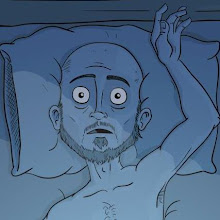
It’s been a long time coming, but the Coen Brothers have finally found a return to the brilliant form the cinema audience had come to expect from them. After such brilliant films as Raising Arizona, Fargo and The Big Lebowski, the Coens seemed to hit a creative wall in the early 2000s after The Man Who Wasn’t There. Intolerable Cruelty and the remake of The Ladykillers saw the Coens produce films that, while not terrible, weren’t as good as the rest of their body of work. But with the release of No Country For Old Men, they have given us another outstanding film, and what some are calling the finest film they have made.
No Country For Old Men follows three men, who are on a path that will see their destinies cross. Firstly, we are introduced to Anton Chigurh, a ruthless and merciless bounty hunter. Within a few minutes of being introduced to this character, it is clear that he is not somebody to be trifled with. Even when in handcuffs, he is incredibly dangerous. He’s single-minded, and will kill pretty much anybody he encounters, with a few having a lucky escape thanks to the toss of a coin. Llewelyn Moss is a welder who, while hunting the plains of Texas, stumbles across a drug deal gone bad. Everyone involved with the deal is either dead or dying. Moss finds thousands of pounds of heroin and a case containing two million dollars, which he takes for himself. It’s a decision that leads him down a dangerous and potentially deadly path. And finally, we meet Sheriff Ed Tom Bell, the Texas sheriff who is hunting for the killer of a policeman, and who’s jurisdiction the failed drug deal has come under.

The film is adapted from Cormac McCarthy’s 2005 novel of the same name. The story deals with chance and predestination, with the paths of the three men being able to be traced back to one decision. Chigurh, mentions to one character how the coin and he have travelled a road that has led to that moment in time. He is the character who seems the most in tune with the idea of predestination. In one particularly chilling scene, he plays a game of chance with a gas station attendant, and it becomes clear from this not only that he is obsessed with chance, but also how cold blooded he can be.
It’s Javier Bardem’s performance as Anton Chigurh that really is the highlight of the film. Aside from his bizarre hairstyle, which only adds to the character, Chigurh’s almost expressionless face only ever cracks into a smirk when he’s about to do something particularly nasty. It’s a totally compelling performance, and in time will probably be viewed as one of cinema’s great villains. Tommy Lee Jones brings his dry wit to the role of Sherriff Ed Tom Bell. He’s the character who is most uncomfortable with how things just ‘ain’t how they used to be.’ He’s been around a long time, and is decidedly uncomfortable with how society and the landscape aren’t the same as when he first became a Sherriff. It’s a pretty comfortable role for Jones to play, but that’s not to take away from his excellent performance.

Josh Brolin plays Llewelyn Moss. Brolin’s career is going through somewhat of a resurgence in the last year with two excellent performances in this, and American Gangster. Contrasting his villainous role in American Gangster, in No Country For Old Men, he’s the hero of the piece. He’s a Vietnam veteran (the film is set in 1980) and life has had it’s affect on him. But the discovery of the money and the problems it brings, brings some life back to him, and he becomes quite an interesting character. Kelly Macdonald puts in a career-making performance as Llewelyn’s wife, Carla Jean. While it isn’t a huge role, Macdonald seems completely at home with the southern drawl and her performance should see a great many more roles being offered to her. Woody Harrelson also turns up in a great cameo as Carson Wells, a rival bounty hunter to Chigurh.
The cinematography in the film is stunning. Roger Deakins, who shoots his second western since the beautiful The Assassination of Jesse James By The Coward Robert Ford, once again captures the vast emptiness of the west. While there was an almost golden sheen to The Assassination... his cinematography in No Country For Old Men captures the starkness of the modern western and the emptiness of the desert perfectly.
I haven’t read McCarthy’s novel, but from what I’ve been reliably informed, the Coens have presented an almost perfect adaptation. The ending of the film, which divided some audiences remains in tact, and is not a comfortable ending. Nothing really seems to wrap up neatly, and this is one of the strengths of the film. It would be all too easy to end things with dramatic logic, but I would have felt somewhat cheated. This isn’t a conventional film, and it doesn’t really warrant a conventional ending. That isn’t to say it’s not satisfying. It totally makes sense in the context of the story.
Like I’ve said, it’s been a long time since we’ve gotten a great Coen brothers film. But No Country For Old Men changes that. Is it their best film? It’s certainly arguable that it is. It’s not my favourite, that’s reserved for The Big Lebowski. But it’s certainly their most accomplished film. It leads this year’s Academy Awards with There Will Be Blood, both with eight nominations each. And with Bardem deservedly in contention for best supporting actor, it should prove for an interesting (if pointless, really) competition with Paul Thomas Anderson’s apparently amazing fifth film (something I’ve yet to see).
 9/10
9/10






